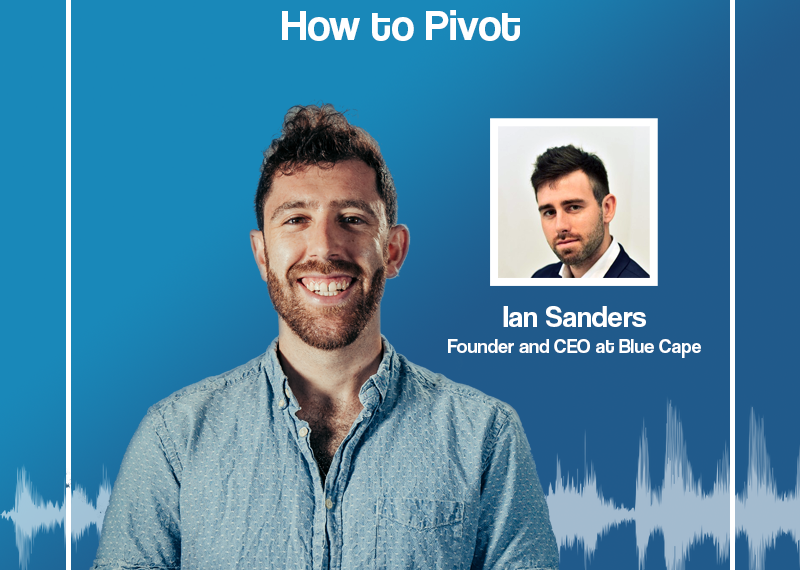Starting a business is not for the faint of heart. As a startup grows, founders may encounter unexpected obstacles, and sometimes a pivot is necessary. A pivot is essentially a change in business direction, which can involve changing the product or business model. In this article, we will explore the lessons learned from entrepreneur Ian Sanders, CEO and Founder of Blue Cape, as he navigated his own startup journey and made the decision to pivot.
You can learn more about Blue Cape in this episode of High Tech on the Low but in short, Blue Cape is dealing with issues of epidemiology and endemic respiratory diseases. Using unique prediction models, they aim to provide needed data to people to understand how these diseases interact with and react to human population centers.

Listen to the Episode Now on Spotify!
Listen to the Episode Now on Apple Music!
How Can a Founder Know When Pivoting is Right?
Pivoting is not a decision that should be taken lightly. Founders must assess the situation and determine whether a pivot is the right move. Ian Sanders shares that when he decided to pivot his startup from the healthcare space to insurtech, he did so after receiving feedback from credible industry experts he spoke with who verified his research and assumption regarding the market. In the process, he was even able to identify an even greater need than he previously had in healthcare.
“I realized that I needed to change something moving forward and adapt to new information I had been gathering – it was time to make a change.” As he consulted with industry experts and potential customers to gather feedback, he was able to assess that by reaching for healthcare he had been focusing on a model that was too consumer centric. By assessing this more business centric market, he identified an even greater need for predictive disease and epidemic analytics in the insurtech space. “It was a risk, but ultimately the right decision for our company,” he says.
Assessing when to pivot requires a careful evaluation of the company’s current direction and the potential for future growth. It should not be taken lightly, as founders should also consider market conditions and the competition. But once you have the necessary data telling you to go for it, then you should. As Ian explains, “It’s important to stay flexible and open to change. The ability to pivot and make adjustments is what sets successful startups apart.”
A Snapshot of the Insurtech Market
The insurtech industry has experienced explosive growth in recent years, with new players entering the market and established companies investing in innovative technologies. As Ian notes, “The insurtech market is a very promising space, it has tremendous potential for growth.” With advancements in artificial intelligence, big data, and machine learning, insurtech focused companies like Blue Cape are aiming to capitalize on this technological development and offer insurance industry players innovative products and services.
“We are seeing that insurance companies are hungry for solutions like ours,” says Ian. In the end, it helps them do business more efficient while offering their clients better service. However, with growth comes competition, and startups must find ways to differentiate themselves in a crowded market. “The key is to offer something unique, whether it’s a new product or service, or a different approach to how to do business,” explains Ian.
Embracing Change as Part of the Startup Journey
The only thing certain for startup founders, like the rest of life, is: change. Founders must be prepared to embrace challenges and adapt to new circumstances, even when it means letting go of team members or changing business direction. Ian explains that he had to navigate the difficult decision of parting ways with his CTO during the pivot to insurtech.”It was a tough decision, and we ended well, he still has a spot to rejoin us, but such is life,” says Ian. “As a founder, you have to be willing to make difficult choices and do what’s best for the business in the long run.”
Embracing change also means staying agile and open to new ideas. “We are always looking for ways to innovate and stay ahead of the curve,” says Ian. “We stay informed on industry trends and listen to our customers to ensure we are meeting their needs.”
While making the decision to pivot can be challenging, it can ultimately lead to greater success. “Sometimes certain elements of the business are just out of your hands,” says Ian. “But if you stay focused on your mission and are willing to adapt, you can overcome any obstacle and achieve your goals.”





















